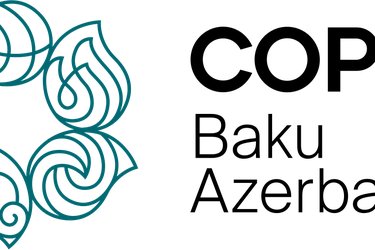
Locally-led adaptation (LLA) was a core theme for LIFE-AR at COP29. Locally-led approaches are at the core of LIFE-AR as evidenced by the recent brochure “Demonstrating Locally-Led Adaptation Principles in Practice”. LIFE-AR contributed to the conversation around LLA and was presented a mechanism for advancing LLA during several related events at COP29.
The LIFE-AR high-level partnership dialogue was a great opportunity to showcase how countries implemented LIFE-AR and the progress they made so far. The Ministries and Department representatives from Burkina Faso, Ethiopia, Malawi and The Gambia emphasised the importance of empowering LDCs to lead adaptation efforts on their own terms, highlighting their achievements in establishing national climate finance mechanisms, engaging communities to determine priorities, and adopting “whole-of-society” approaches to foster collaboration. Development partners, including the UK, GEF, Spain, and the US, expressed their support for LIFE-AR, recognizing its potential as a model for locally-led adaptation at scale.
To give the topic a more practical flavour, Burkina Faso held its own LIFE-AR event in its pavilion. The presentation focused on the role of the task force in producing the baseline studies, the extensive consultation with communities to select investments and the institutional changes LIFE-AR brought at the national and the communes level.
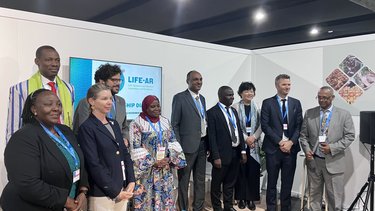
D&C Days provided an opportunity to present and discuss LIFE-AR’s "Business Unusual" (BU) approaches. Focal Points from Bhutan, Ethiopia, and Uganda shared examples of "Business Unusual" approaches in their countries and the impact of LIFE-AR and group discussions allowed to gain a nuanced understanding of BU for all stakeholders.
LIFE-AR was additionally cited in three other events focusing on LLA. The book launch “2024 Stories of resilience – lessons from local adaptation practice” spotlighted successful LLA strategies, impact stories in adaptation finance and best practices in LLA. LIFE-AR was featured as one of the example showcased in the book. LIFE-AR was also mentioned during the panel discussion “Locally led adaptation: how to hold ourselves accountable for delivery? Voices from the global South” where community leaders shared insights on how to deliver LLA that benefits people, climate and nature. The initiative was also featured during the discussion on “Innovation and Informality: Locally-led Climate Action in Cities” with the presentation of LIFE-AR’s Climate finance advisor. And finally, the LIFE-AR brochure on LLA was included into the UNFCC capacity building hub, in relation to IIED’s work on tools and methodologies for climate finance.
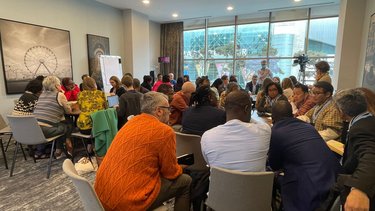
LIFE-AR was created and operationalised based on observing the failings of the current climate system, and with the transformative goal of shifting the global and national mechanisms to better respond to LDCs’ needs. That theme was explored during COP29, with LIFE-AR featured in key events and panel discussions. The key themes explored were the critical need to adapt and develop innovative and inclusive financial mechanisms to better support governments and local actors, ensuring alignment with local contexts and priorities; the necessity for long-term planning, accessible finance, and a shift towards comprehensive, multi-sectoral adaptation mechanisms; and the importance of providing grants instead of loans for adaptation funding, especially for heavily indebted countries.
The “Financial innovations in national systems: scaling ambition and capacities for locally led adaptation research and action” event focused on the critical need for adapting financial mechanisms to better support governments and local actors. Discussions highlighted the importance of creating or strengthening national financial vehicles and ensuring these systems align with local contexts and priorities. A recurring theme was the imbalance in current funding systems, which remain dominated by developed countries, and the need for systemic reforms to empower local actors and ensure long-term, accessible, and flexible financing.
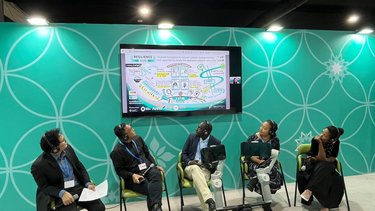
The Climate & Development Ministerial process event centred around the need for long-term planning and accessible finance. The panel advocated for a shift from siloed sectoral approaches to more comprehensive, multi-sectoral adaptation mechanisms, requiring a whole-of-government and whole-of-society approach, which is aligned with LIFE-AR’s principles. The commitment of long-term and flexible finance from funders is necessary to enable locally led adaptation investment choices based on climate risk assessments. The move towards grants and concessional funding rather than loans was highlighted to alleviate the burden on LDCs and Small Island Developing States. The event also emphasized the necessity for systemic reforms in government planning, budgeting, reporting, and monitoring and evaluation in order to support more successful programmatic approaches.
The IMF high-level event “Bridging the Adaptation Financing Gap: Challenges and Potential Solutions” addressed the need to balance adaptation and mitigation efforts, highlighting that most private finance is currently invested in mitigation. The importance of providing grants rather than loans for adaptation funding to heavily indebted LDCs facing the worst impacts of climate change was emphasized. Knowledge gaps on climate impacts and the importance of shared risk and de-risking mechanisms for private sector finance were also discussed, alongside the necessity for policy and regulatory reforms to support private sector engagement in adaptation efforts, particularly in developing economies.
The event “Catalysing climate resilience in Africa: leveraging experiences from locally-led and global climate-informed innovative financing models” highlighted the significant challenges African countries face in accessing climate finance, particularly for locally-led adaptation initiatives. Discussions emphasized the need for innovative and inclusive financing mechanisms that align global climate finance flows with local priorities, ensuring community-driven actions are central to adaptation efforts. Key themes included the importance of direct access to finance, diversifying funding sources, and fostering collaboration across sectors to manage climate risks effectively. Panellists stressed the necessity of building trust, harmonizing policies, and integrating social inclusion to ensure equitable and sustainable climate actions. The event underscored the urgency of systemic reforms to simplify access to funding, prioritize grants over loans, and support long-term, locally-led adaptation strategies that address Africa’s unique challenges and opportunities.
How to decolonise climate finance was another topic on which LIFE-AR director’s insights moved the conversation towards the need to move beyond words and address the current systems that are in place.
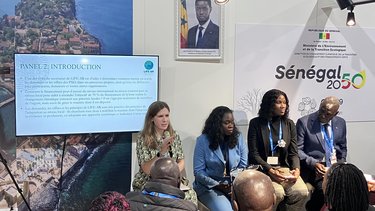
Last but not least, the importance and role of partnerships was a recurring theme during COP29. One of the key principles of LIFE-AR is to “work together on a shared and equal platform. As UNIDO is supporting the LDC Group to establish its Secretariat, it was a good opportunity to bring together partners to redefine their vision of partnerships.
LIFE-AR organised a discussion focused on the importance of partnerships as a means to address unequal power dynamics and empower LDC voices and independence. The panels emphasized the need to move beyond collaboration and towards trust with the international community. Specific challenges such as lack of flexibility and standardization in reporting, limited predictable financing, and high costs of intermediation were raised, prompting a discussion on the need for the international community to reform its approaches in line with the LDC's requirements.
Apart from events, the LIFE-AR team also organised multiple bilateral meetings with partners, to provide updates on the initiative and discuss ways forward.
Despite the disappointing outcome of the COP29 negotiations as underlined by the LDC Group, LIFE-AR and the FRC countries gained significant visibility and the key themes of the initiative added value to the exchanges on LLA, climate finance and partnerships.